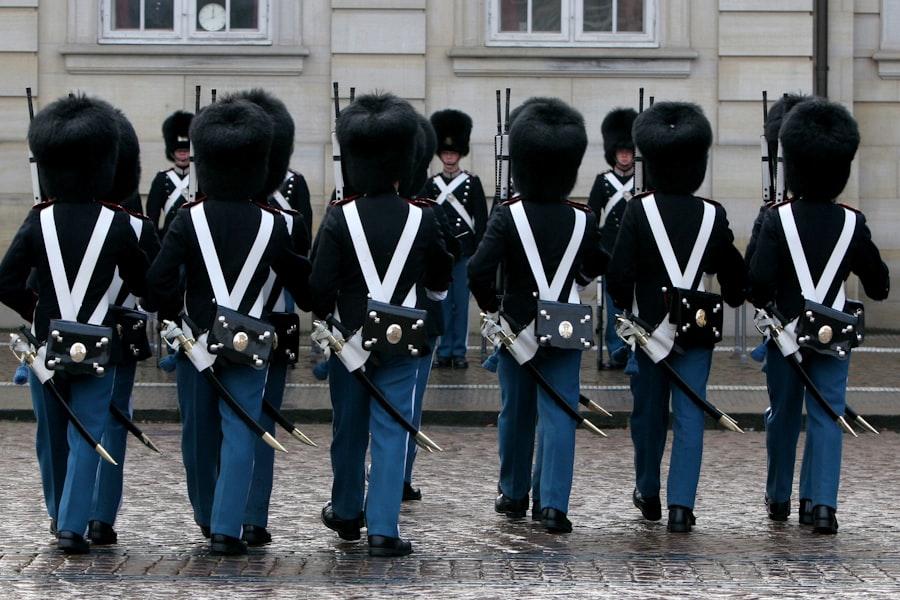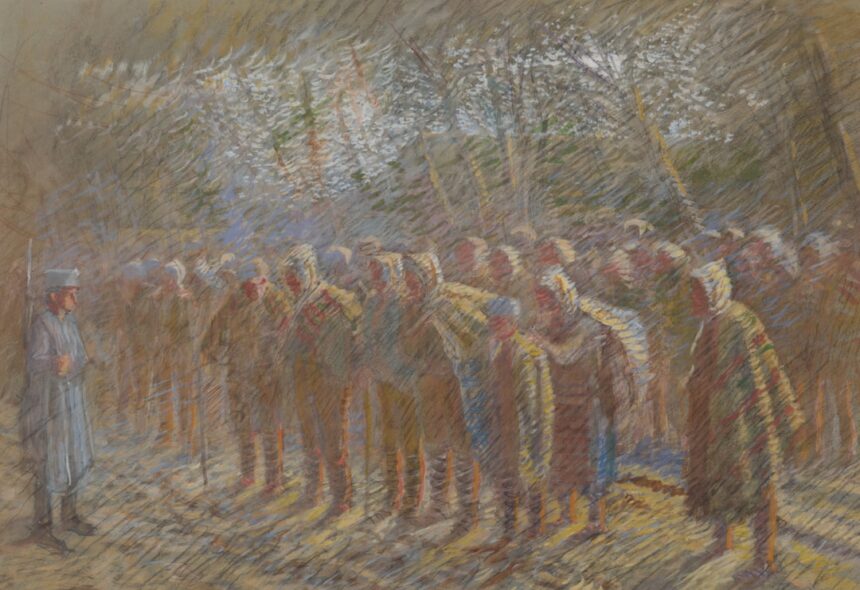Private armies, often referred to as private military companies (PMCs), have emerged as significant players in the landscape of modern warfare and conflict. These entities operate outside the traditional military structures of nation-states, providing a range of services that include armed security, logistical support, and combat operations. The rise of private armies can be attributed to various factors, including the increasing complexity of global conflicts, the privatization of military functions, and the demand for flexible and cost-effective solutions in warfare.
As states grapple with budget constraints and the need for rapid deployment, private armies have filled a void, offering services that blur the lines between military and civilian roles. The phenomenon of private armies raises critical questions about sovereignty, accountability, and the ethical implications of outsourcing violence. While they can provide essential support in conflict zones, their presence often complicates the dynamics of warfare and raises concerns about the potential for abuse.
The evolution of private armies reflects broader trends in globalization and the privatization of security, prompting a reevaluation of how conflicts are funded and managed in the contemporary world.
Key Takeaways
- Private armies have historically played significant roles in funding and perpetuating conflicts worldwide.
- These forces operate as business entities, often profiting from ongoing wars and instability.
- Private armies are frequently used as proxies by state actors to influence conflicts without direct involvement.
- Their activities raise serious legal, ethical, and human rights concerns, complicating international accountability.
- Addressing the challenges posed by private armies requires coordinated global efforts and robust regulatory frameworks.
Historical Examples of Private Armies Funding Conflict
Throughout history, private armies have played pivotal roles in funding and sustaining conflicts. One notable example is the use of mercenaries during the Thirty Years’ War in Europe, where various states employed private soldiers to bolster their military capabilities. These mercenaries were often motivated by financial gain rather than loyalty to a nation, leading to a chaotic and fragmented battlefield.
The reliance on mercenaries during this period highlighted the potential for private forces to influence the outcomes of wars, as their allegiance could shift based on the highest bidder. In more recent times, the involvement of private armies in conflicts such as the Gulf War and the Iraq War has underscored their relevance in modern warfare. Companies like Blackwater (now known as Academi) gained notoriety for their role in providing security services to U.S.
forces and civilian contractors in Iraq. Their actions raised significant ethical concerns, particularly following incidents that resulted in civilian casualties. These historical examples illustrate how private armies have not only funded conflicts but also shaped their trajectories, often with far-reaching consequences for both combatants and civilians.
The Business of Private Armies

The business model of private armies is multifaceted, encompassing a range of services that cater to both governmental and non-governmental clients. These companies often operate on a for-profit basis, seeking contracts from states, corporations, and international organizations. The services they provide can include armed security for personnel and assets, training for local forces, intelligence gathering, and logistical support.
This diversification allows private armies to adapt to various conflict scenarios and client needs, making them attractive options for those seeking military solutions without the political baggage associated with state forces. The financial incentives driving the growth of private armies are significant. With defense budgets under pressure in many countries, governments are increasingly turning to PMCs as a cost-effective alternative to traditional military forces.
This trend has led to a booming industry where companies compete for lucrative contracts in conflict zones around the world. However, this commercialization of warfare raises concerns about prioritizing profit over ethical considerations and accountability. As private armies become more entrenched in global conflicts, their business practices warrant scrutiny to ensure that they operate within legal and moral boundaries.
The Role of Private Armies in Proxy Wars
| Metric | Description | Example | Impact on Proxy Wars |
|---|---|---|---|
| Number of Private Military Companies (PMCs) | Estimated count of active PMCs globally involved in proxy conflicts | Over 100 known PMCs worldwide | Increases availability of armed forces for hire, enabling proxy engagements |
| Average PMC Personnel Deployed | Typical number of contractors deployed by PMCs in proxy war zones | 500-2,000 personnel per conflict | Augments local forces, shifting balance of power without direct state involvement |
| Countries Utilizing PMCs in Proxy Wars | Number of states known to employ PMCs for proxy engagements | Approximately 15-20 countries | Allows states to maintain plausible deniability and reduce political risk |
| Estimated Annual Revenue of PMCs | Global income generated by PMCs involved in proxy conflicts | Several billion (non-specific) | Reflects the scale and profitability of private military involvement in proxy wars |
| Casualty Rates Among PMC Contractors | Reported fatalities and injuries of PMC personnel in proxy wars | Varies widely; some conflicts report up to 10% casualty rates | Influences PMC operational capacity and public perception of proxy conflicts |
| Duration of PMC Engagements | Average length of PMC contracts in proxy war zones | 6 months to 2 years | Enables sustained military presence without official state deployment |
| Legal Accountability Cases | Number of documented legal actions against PMCs for proxy war activities | Less than 10 high-profile cases | Highlights challenges in regulating private armies in international conflicts |
Private armies have become instrumental in proxy wars, where states engage in indirect conflict by supporting rival factions through third-party actors. In these scenarios, private military companies often serve as the means through which states can exert influence without direct involvement. For instance, during the Syrian Civil War, various foreign powers employed private armies to support different factions, allowing them to pursue their strategic interests while minimizing their own military casualties and political fallout.
The use of private armies in proxy wars complicates the already intricate web of alliances and enmities that characterize such conflicts. By outsourcing military operations to PMCs, states can maintain plausible deniability regarding their involvement while still shaping the battlefield dynamics. This practice not only prolongs conflicts but also creates a murky environment where accountability is difficult to establish.
As private armies operate with varying degrees of oversight, their actions can exacerbate tensions and contribute to human suffering without clear repercussions for those who employ them.
The Influence of Private Armies on Global Conflict
The influence of private armies on global conflict is profound and multifaceted. As these entities become more integrated into military operations, they can alter the balance of power in various regions. Their ability to operate independently from state control allows them to act swiftly and decisively, often outpacing traditional military responses.
This agility can be advantageous in rapidly evolving conflict situations but also raises concerns about the potential for unchecked violence and human rights abuses. Moreover, the proliferation of private armies can lead to a fragmentation of military power, where multiple actors operate with varying degrees of legitimacy and accountability. This decentralization can create challenges for conflict resolution efforts, as negotiating with numerous private entities becomes increasingly complex.
The presence of private armies can also undermine state authority, particularly in regions where governments are weak or lack control over their territories. As these forces gain prominence on the global stage, their impact on conflict dynamics will continue to be a critical area of study for policymakers and scholars alike.
The Legal and Ethical Implications of Private Armies

The legal status of private armies remains a contentious issue within international law. While some argue that PMCs should be subject to the same legal frameworks as state militaries, others contend that their commercial nature complicates matters of accountability and oversight. The lack of a comprehensive regulatory framework governing private military operations has led to significant legal gray areas, where actions taken by these entities may not be adequately addressed by existing laws.
Ethically, the use of private armies raises profound questions about the morality of outsourcing violence. Critics argue that privatizing military functions commodifies human life and undermines the principles of sovereignty and justice. The potential for profit-driven motives to overshadow ethical considerations poses significant risks in conflict situations where civilian lives are at stake.
As the international community grapples with these challenges, there is an urgent need for dialogue on establishing clear legal standards and ethical guidelines governing the operations of private armies.
The Role of Private Armies in Terrorism
Private armies have also been implicated in the realm of terrorism, both as facilitators and as targets. In some cases, PMCs have been contracted to protect assets or personnel from terrorist threats, leading to a complex interplay between security providers and extremist groups. Conversely, certain private military companies have been accused of exacerbating tensions by engaging in aggressive tactics that may provoke retaliatory actions from terrorist organizations.
The relationship between private armies and terrorism is further complicated by the fact that some PMCs operate in regions where state authority is weak or non-existent. In such environments, these companies may inadvertently empower local militias or extremist groups by providing them with resources or training. This dynamic can create a cycle of violence that perpetuates instability and undermines efforts to combat terrorism effectively.
As global security challenges evolve, understanding the role of private armies in this context will be crucial for developing comprehensive counter-terrorism strategies.
The Impact of Private Armies on Human Rights
The presence of private armies in conflict zones has significant implications for human rights. Numerous reports have documented instances where PMCs have been involved in human rights abuses, including extrajudicial killings, torture, and unlawful detention. The lack of accountability mechanisms for these entities often leaves victims without recourse for justice or redress.
Furthermore, the operational practices of private armies can contribute to an environment where human rights violations are normalized. In situations where PMCs operate with minimal oversight or regulation, there is a heightened risk that their personnel may engage in abusive behavior without fear of repercussions. This reality poses serious challenges for humanitarian efforts aimed at protecting civilians in conflict zones and underscores the urgent need for robust legal frameworks that hold private armies accountable for their actions.
The Relationship Between Private Armies and State Actors
The relationship between private armies and state actors is complex and often fraught with tension. While some governments view PMCs as valuable partners that can enhance national security capabilities, others express concern about the potential erosion of state authority and accountability. This dynamic can lead to a precarious balance where states rely on private forces while simultaneously grappling with the implications of outsourcing military functions.
In many cases, state actors may employ private armies to achieve strategic objectives while maintaining plausible deniability regarding direct involvement in conflicts. This practice raises questions about sovereignty and accountability, particularly when PMCs engage in actions that violate international law or human rights standards. As states increasingly turn to private military solutions, it becomes imperative to establish clear guidelines governing these relationships to ensure that they align with national interests while upholding ethical standards.
The Future of Private Armies in Funding Conflict
Looking ahead, the future of private armies in funding conflict appears poised for continued growth amid evolving geopolitical landscapes. As states face mounting pressures related to budget constraints and shifting security priorities, reliance on PMCs is likely to increase as a means of addressing complex challenges without committing conventional forces. This trend may lead to further normalization of privatized military functions within national security frameworks.
However, this trajectory also raises critical questions about accountability and oversight in an increasingly privatized security environment. As private armies become more entrenched in global conflicts, there will be an urgent need for international cooperation to establish regulatory frameworks that govern their operations effectively. Addressing these challenges will require collaboration among states, civil society organizations, and international bodies to ensure that the use of private military forces aligns with principles of justice and human rights.
Addressing the Challenges Posed by Private Armies
In conclusion, the rise of private armies presents both opportunities and challenges within the context of global conflict. While these entities can provide valuable services in complex security environments, their presence raises significant legal, ethical, and human rights concerns that must be addressed proactively. As states increasingly rely on PMCs to fulfill military functions traditionally reserved for national forces, it is imperative to establish robust regulatory frameworks that ensure accountability and uphold ethical standards.
The future landscape of warfare will likely continue to be shaped by the influence of private armies as they navigate an evolving geopolitical landscape marked by uncertainty and complexity. Addressing the challenges posed by these entities will require concerted efforts from governments, international organizations, and civil society to promote transparency, accountability, and respect for human rights in all aspects of military operations.
Private armies play a significant role in funding global conflicts, often operating in the shadows and complicating the landscape of warfare. For a deeper understanding of how these entities influence international relations and contribute to ongoing strife, you can read more in this insightful article on the topic at In the War Room. This resource delves into the intricate connections between private military contractors and the funding of conflicts around the world, shedding light on the implications for global security.
WATCH THIS! The Secret War for Africa’s Gold: How Private Armies Fund Global Conflict
FAQs
What are private armies?
Private armies, also known as private military companies (PMCs) or mercenary groups, are armed organizations that operate independently of national military forces. They are often hired by governments, corporations, or other entities to provide security, combat services, or military training.
How do private armies fund their operations?
Private armies typically fund their operations through contracts with governments, corporations, and other clients. They may also engage in illicit activities such as smuggling, extortion, or control of natural resources in conflict zones to generate additional revenue.
What role do private armies play in global conflicts?
Private armies often participate in global conflicts by providing combat support, security services, and logistical assistance. They can influence the outcome of conflicts by supplementing national forces or acting as proxies for various political or economic interests.
Are private armies regulated internationally?
There is no comprehensive international regulation specifically governing private armies. However, various international laws and treaties, such as the Geneva Conventions, apply to their conduct. Some countries have national laws regulating the operation and activities of private military companies.
What are the risks associated with private armies in conflict zones?
Risks include lack of accountability, potential human rights abuses, escalation of violence, and undermining of state sovereignty. Private armies may operate with limited oversight, which can lead to violations of international law and complicate peace efforts.
How do private armies impact local populations in conflict areas?
Private armies can have both protective and harmful impacts. While they may provide security and stability in some cases, they can also contribute to violence, displacement, and exploitation of local communities, especially if motivated by profit rather than humanitarian concerns.
Can private armies influence global politics?
Yes, private armies can influence global politics by shaping conflict dynamics, supporting certain factions, and enabling foreign interventions without direct state involvement. Their activities can affect diplomatic relations and international security.
What measures are being taken to address the challenges posed by private armies?
Efforts include calls for stronger international legal frameworks, increased transparency and accountability, national regulations on private military companies, and monitoring by international organizations to prevent abuses and ensure compliance with human rights standards.




